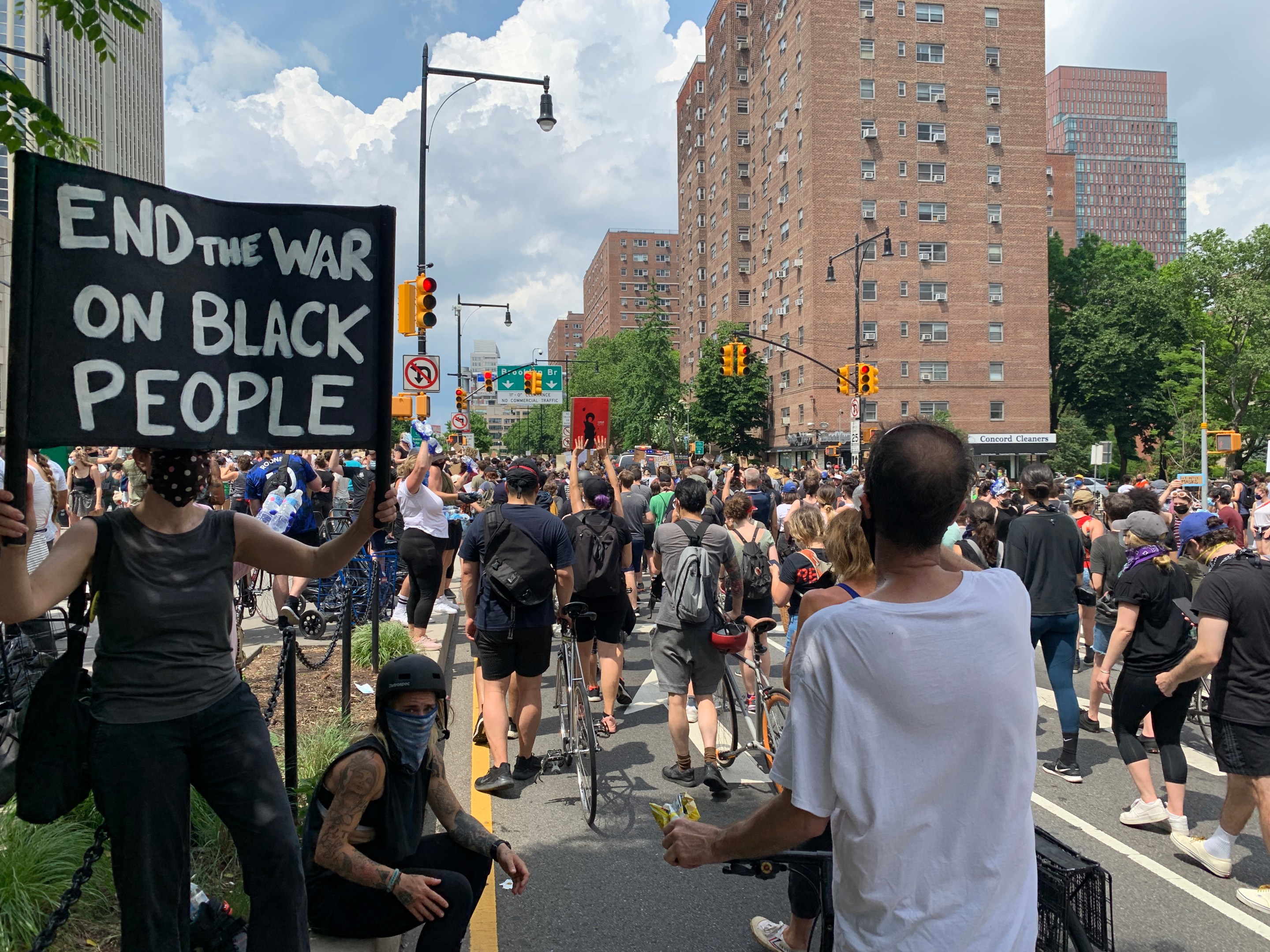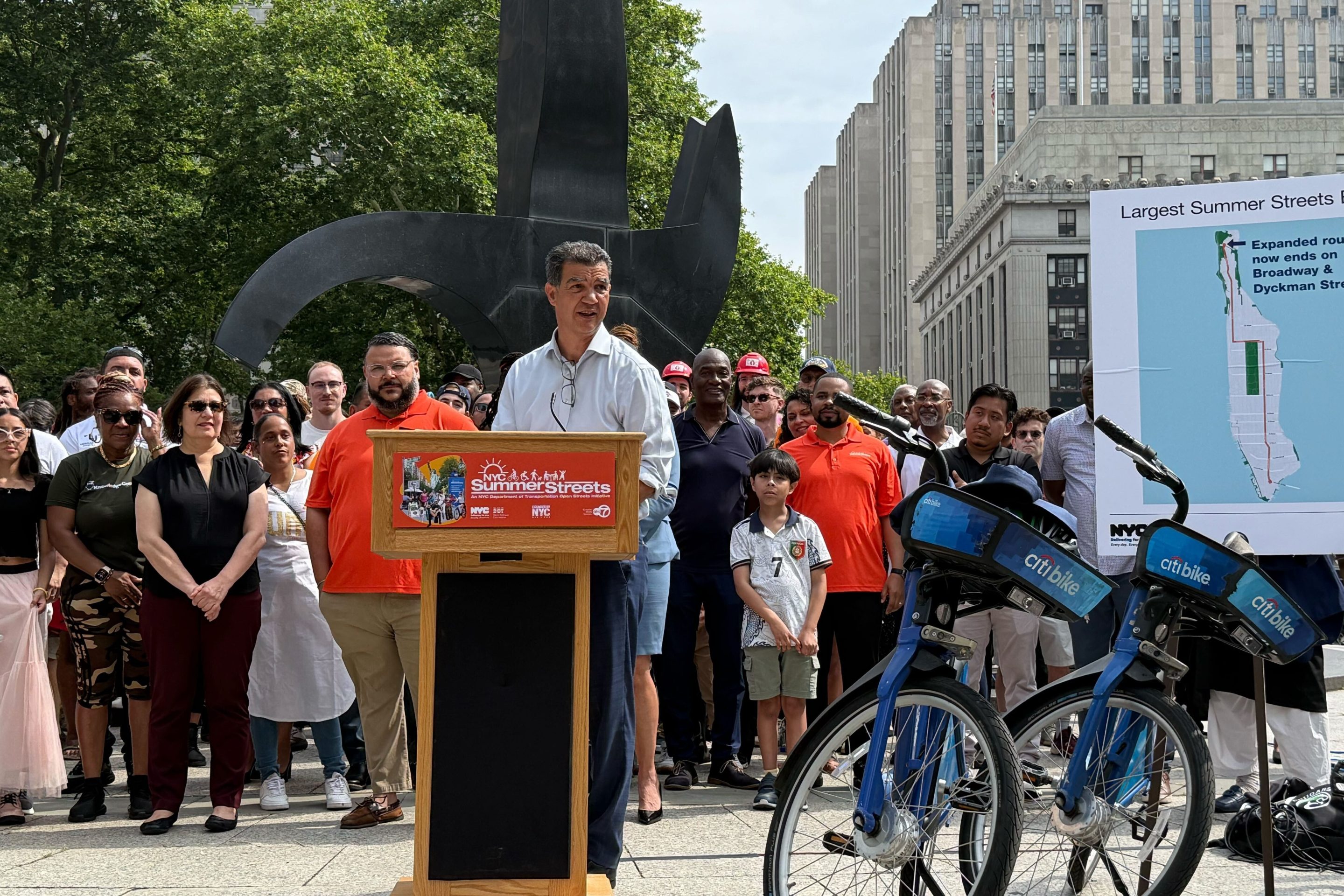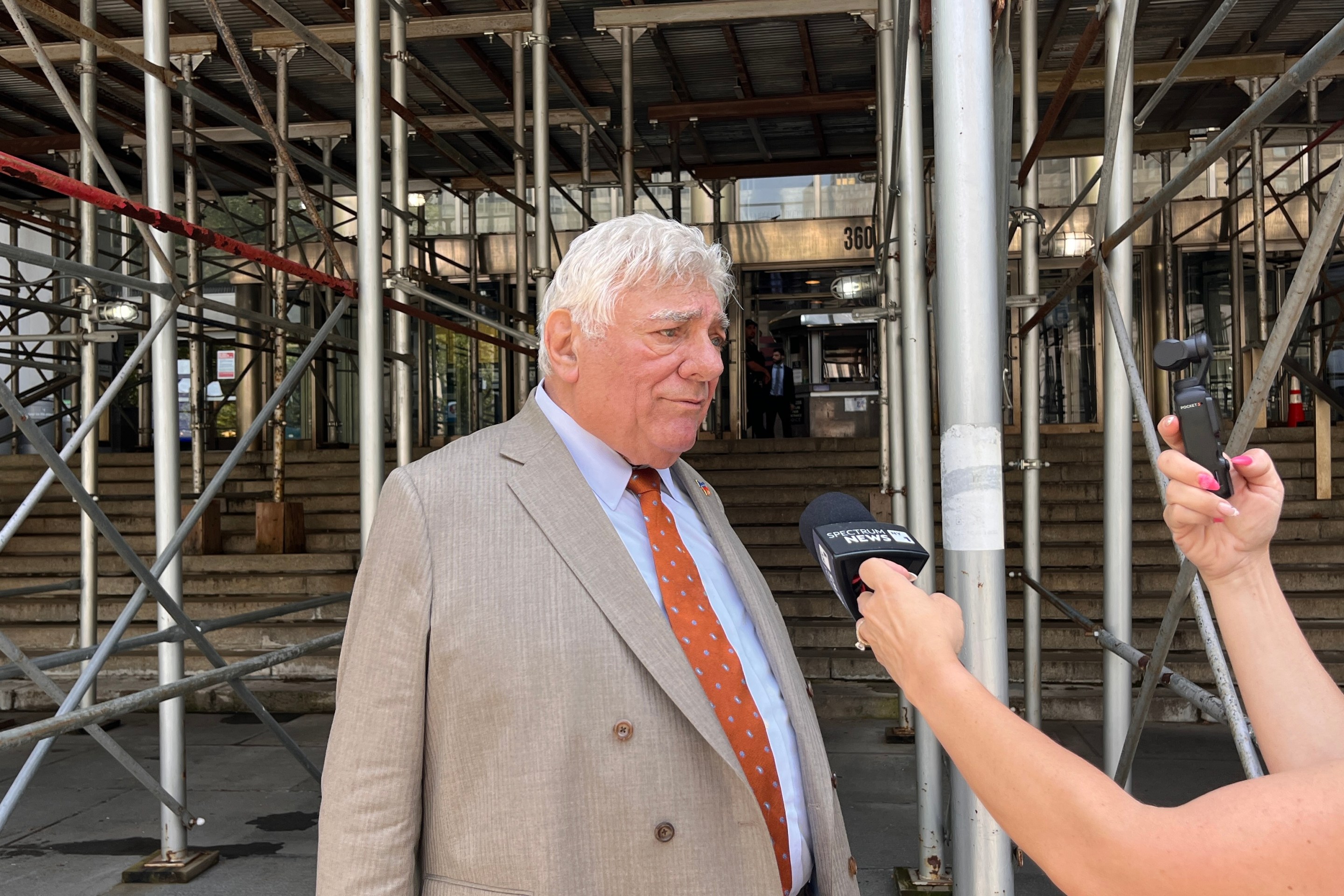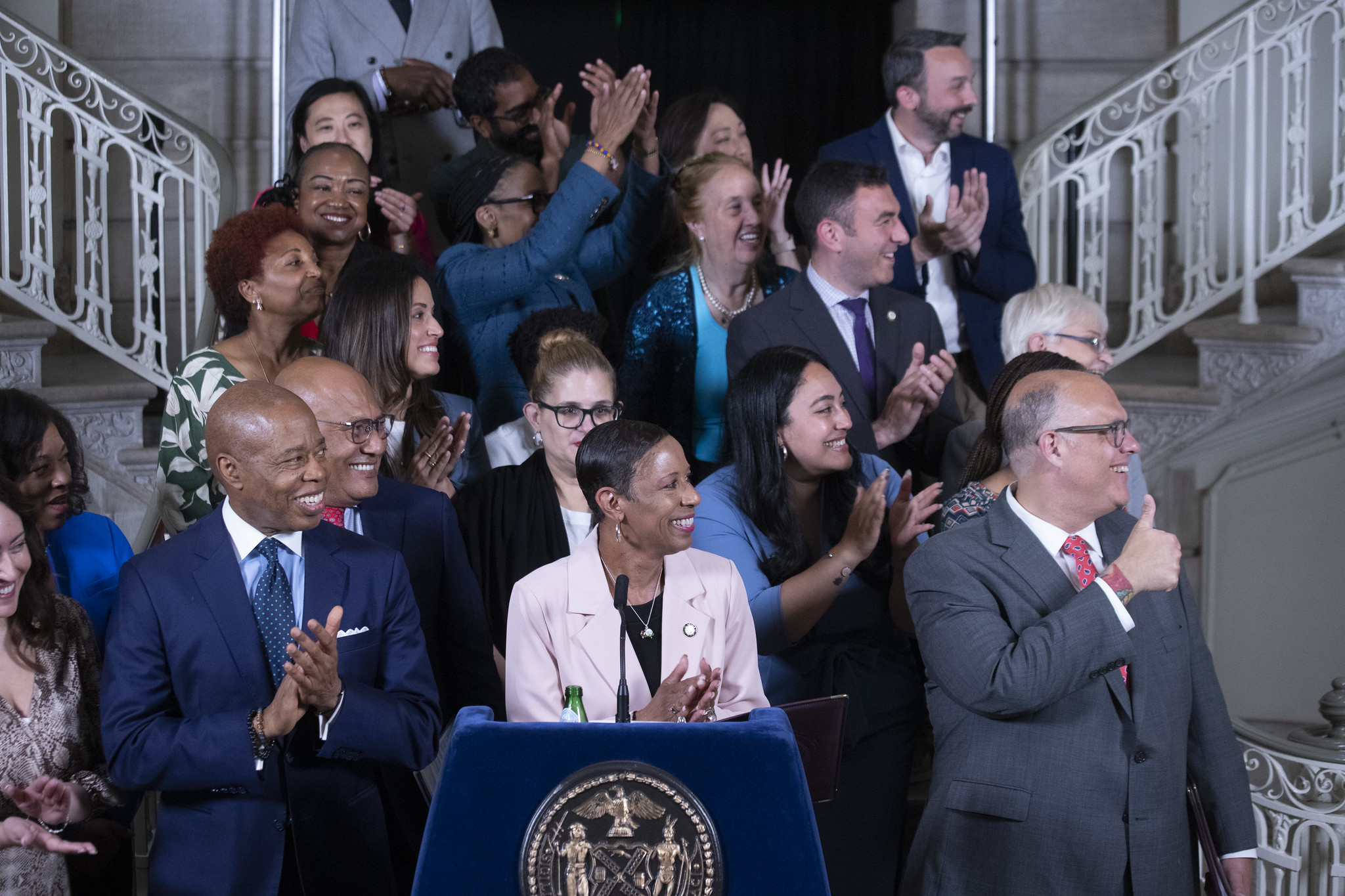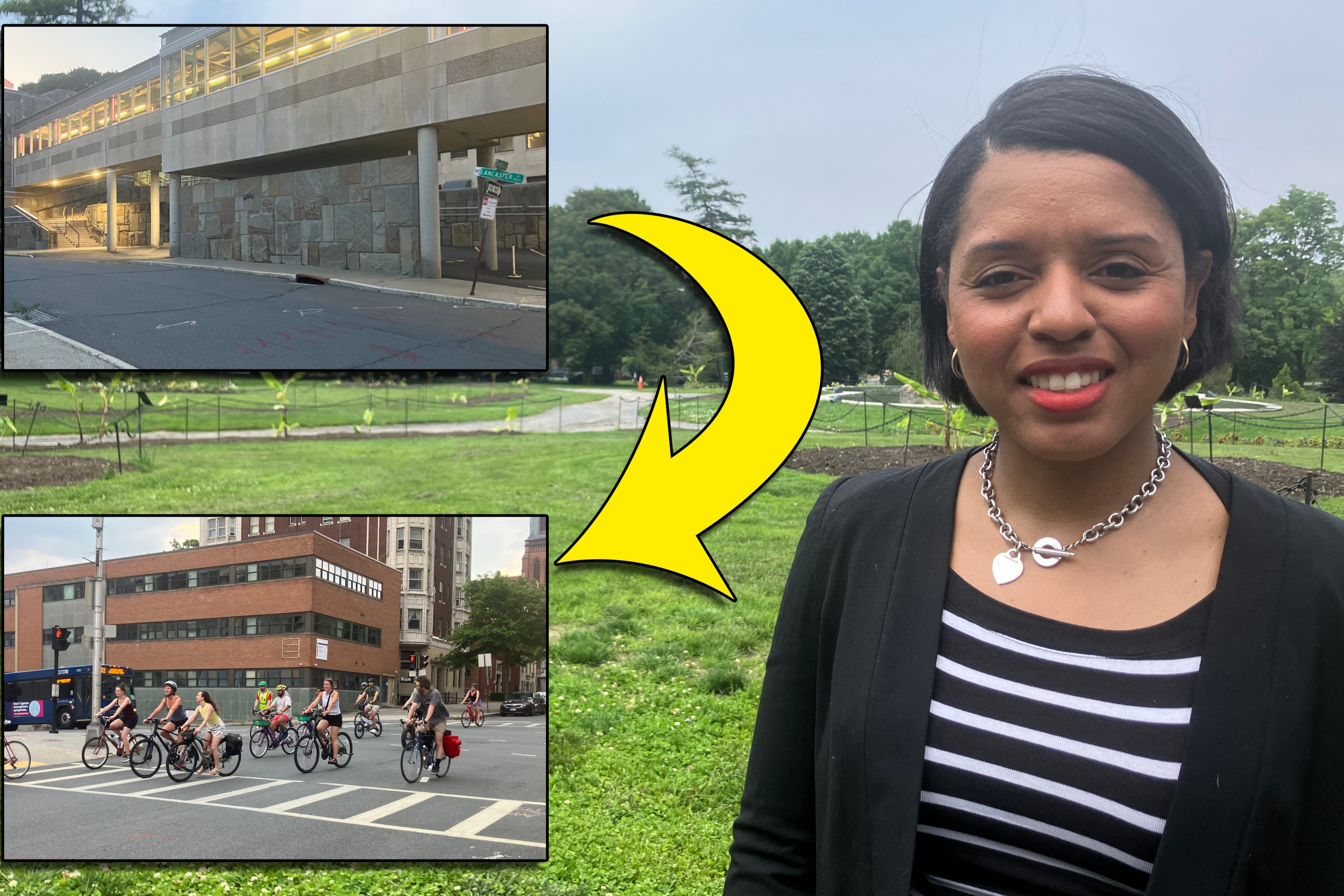It's a significant move — depending on what your definition of "significant" is.
Mayor de Blasio — rocked by 10 days of massive protests against the NYPD in general and the agency's brutality against communities of color in specific — announced a slate of reforms whose seriousness will only be known in the days and weeks to come.
To, as he put it, "strengthen the trust between New Yorkers and [NYPD] officers," the mayor demanded that the NYPD find "significant savings" in its budget — money that would then be transferred "towards youth development and social services for communities of color."
The amount, the mayor said in a statement, "will be finalized with the City Council during the budget process."
Those negotiations are already under way with some members of the council demanding a $1-billion cut in the NYPD's bloated $6-billion budget. The $1 billion represents the amount by which the NYPD budget increased under Mayor de Blasio during historically low crime. And any cut would be the first one under this mayor.
Only a few council members have signed onto the $1-billion pledge, but many others are demanding cuts of some kind [see the open source spreadsheet of each council member here].
The other reforms announced on Sunday include:
- Getting the NYPD out of enforcement of street vending. The change, the mayor said, would allow cops to "can focus on the real drivers of crime instead of administrative infractions." City Hall said in a statement that removing this role for the NYPD is part of a "de-escalation agenda" aimed at "reducing interactions between uniform officers and New Yorkers, particularly immigrant communities and communities of color."
"Here is an area that we are certain does not need to include NYPD enforcement anymore," the mayor said. "And really the vendors — I mean, I've talked to a lot of the vendors and those who support them, they have felt that oftentimes the enforcement was very heavy handed. We want to stop that. We want it to be civilian enforcement. We want it to be sensitive enforcement. I think this is a much better approach."
- "Community ambassadors" within NYPD: It is unclear what this really means. City Hall said it wants to "bring community voices into senior levels of the NYPD by hiring community ambassadors." The initiative would "provide a venue to address complaints and concerns, and ensure NYPD leadership hears New Yorkers."
It's unclear how those ambassadors will be chosen. Mayor de Blasio said only that the ambassadors would be "people from the community, civilians, deeply steeped in their communities with the ability to bring the concerns of the community to the highest levels of NYPD, to bring back answers including on the status of disciplinary cases and changes in policing that need to be done to allow better policing, fairer policing, to make sure there's a truer deep connection between police and community." (That definition of a "community ambassador" seems akin to current members of police precinct community councils, which often work hand-in-glove with their local precincts.)
The mayor on Sunday also reiterated his support for a state legislature bill that would no longer shield cops' disciplinary records from the public. The rule — known as 50-a — is a main target of the anti-brutality protesters because it makes it impossible for victims of police brutality to see an officer's prior infractions.
Oh, and the curfew, which was supposed to continue through tonight, has been lifted.
“While we have taken many steps to reform policing in this city, there is clearly more work to do to strengthen trust between officers and the New Yorkers they serve,” de Blasio said in a statement. “These will be the first of many steps my Administration will take over the next 18 months to rebuild a fairer City that profoundly addresses injustice and disparity.”
The two-dozen members of the Council's Black, Latino and Asian Caucus said the reforms, while positive, came after "many peaceful protesters were victims of violence that validated some of the worst criticisms leveled at the NYPD over the years, and did further damage to the [Police] Department’s standing."
Still, the caucus was optimistic.
"We view today’s announcement as a positive indicator of the mayor’s willingness to embrace reforms that will serve to redefine public safety for millions of New Yorkers of color," the group said.
City Council Speaker Corey Johnson later added that he was appalled by the mayor's response to the protesters, putting it succinctly, "Protests against police brutality were met with more police brutality."
“It's time to de-militarize the NYPD’s approach to protesters and rethink our entire approach to policing," he said in a statement that did not specifically address the mayor's proposal. "We will begin doing this by making changes that are long overdue, including in our upcoming budget by making substantial cuts to the NYPD and reinvesting that monies in communities of color and young people.”
This is a breaking story. Please check back for updates.
